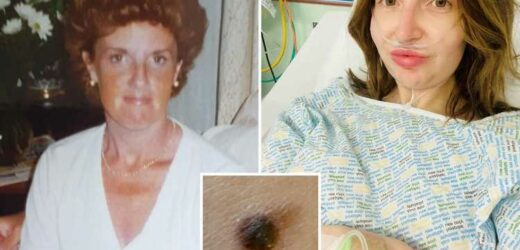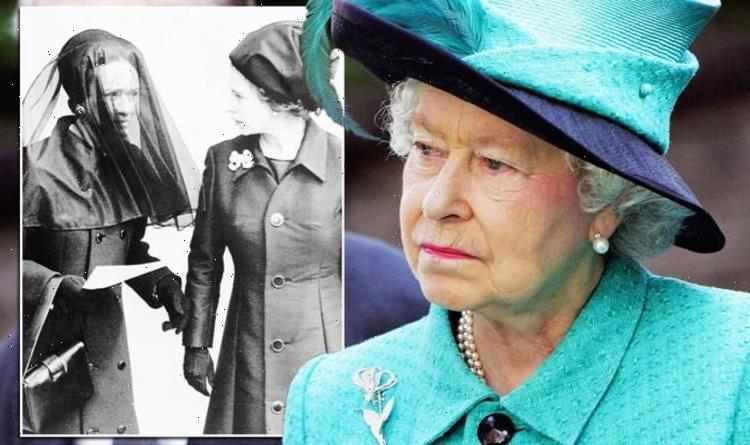A WOMAN who often used sunbeds for a "pre-holiday glow" has been diagnosed with melanoma – the same skin cancer that killed her mum.
Jetsetter Nicola Rudge – mum to seven-month-old Finlay – soaked up the sun on two or three holidays a year and would regularly fork out for 60-minute tanning packages in pursuit of a golden look ahead of her trips.
The 34-year-old, from Inverclyde, Scotland, would hop on a sunbed five or six times before heading to the airport in a bid to feel more confident rocking a bikini and shorts on the beach.
While abroad, Nicola – who started using sunbeds in her early 20s – has admitted she didn't always slather on even a low-factor sunscreen as she enjoyed days around the pool sipping cocktails or at the beach.
Last Christmas, the mum-of-one discovered a dark raised freckle on her right thigh that appeared to have a "tail" and – mindful of her mum's melanoma diagnosis – went to the GP.
Nicola's mum Elizabeth Rudge, who had been a GP practice manager, died 11 years ago aged 53 from a brain tumour – a secondary cancer caused by melanoma believed to have started in a large dark mole on her arm she'd had since a teenager that she never got checked out.
The doctor referred pharmacist Nicola to hospital where skin specialists assessed and then whipped off the mole before sending it off for a biopsy.
Three weeks later Nicola, who is also an aesthetic clinic owner, was given the devastating news that the mole was cancerous and she had stage 1B melanoma.
The young mum is sharing her experience to urge people to be careful in the sun, and to get moles and freckles checked out if they spot changes.
Nicola, from Port Glasgow, said: "I would wear sunscreen, it was usually quite a low factor, sometimes if we were a bit hungover we maybe wouldn't bother putting any on, which is obviously terrible.
"Despite me knowing the risks and losing my mum to this I still was pretty complacent.
"It's so dangerous, I wish I could turn back time but I can't.
"I just want to make people aware that it's dangerous and it can happen to anybody.
WHAT IS MELANOMA?
Melanoma is a type of skin cancer that can spread to other organs in the body.
The most common sign of melanoma is the appearance of a new mole or a change in an existing mole, according to the NHS.
This can happen anywhere on the body, but the most commonly affected areas are the back in men and the legs in women.
In most cases, melanomas have an irregular shape and are more than one colour. The mole may also be larger than normal and can sometimes be itchy or bleed.
Look out for a mole that gradually changes shape, size or colour.
In most cases, once the melanoma has been removed there's little possibility of it returning and no further treatment should be needed.
Most people (80 to 90 per cent) are monitored for one to five years and are then discharged with no further problems.
"Since sharing this I've had one or two people say they've spotted a mole and are going to get them checked out.
"The sooner the better with this as well because it can spread quite quickly so you need to be really vigilant."
After being diagnosed with melanoma, Nicola underwent a second surgery where she had a further excision around the original mole, a lymph node biopsy and another freckle on her arm removed as a precaution.
"When she (the doctor) told me it was stage 1B melanoma obviously I was gutted but I remember thinking 'this isn't the end of the world', I was trying to stay as positive as I could," Nicola, whose dad William died last year of bladder cancer, said.
"My wounds were checked last week and are all looking fine, and get my results back in two weeks' time.
"The hope is that everything comes back all-clear.
"Getting it done was a no-brainer, especially because of Finlay.
"I want to know, I want to secure his future and I want to see him grow up."
Source: Read Full Article





